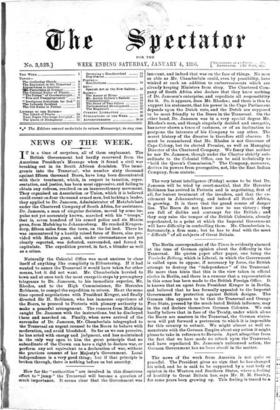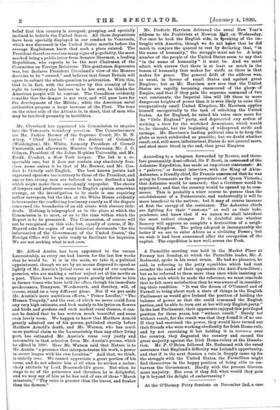The news of the week from America is not quite
so peaceful. The President gives no sign that he has changed his mind, and he is said to be supported by a vast body of opinion in the Western and Southern States, where a feeling of hostility to Great Britain has, says Mr. H. M. Stanley, for some years been growing up. This feeling is traced to a belief that this country is arrogant, grasping, and specially inclined to belittle the United States. All these dispositions have been specially displayed in our conduct to Venezuela, which was discussed in the United States months before the average Englishman knew that such a place existed. The President therefore receives many signs of popularity, the most marked being a public letter from Senator Sherman, a leading Republican, who expects to be the next Chairman of the Committee on Foreign Relations. This gentleman deprecates war, but declares President Cleveland's view of the Monroe doctrine to be "correct," and believes that Great Britain will agree to submit the whole question to arbitration. With this, that is, in fact, with the surrender by this country of her right to territory she believes to be her own, he thinks the American people will be content. The Canadians evidently consider that the danger is not over, and will pass laws for the development of the ; while the American naval authorities propose a large increase of the Fleet. The tone on the other side of the Atlantic is, in short, that of men who may be involved presently in hostilities.















































 Previous page
Previous page